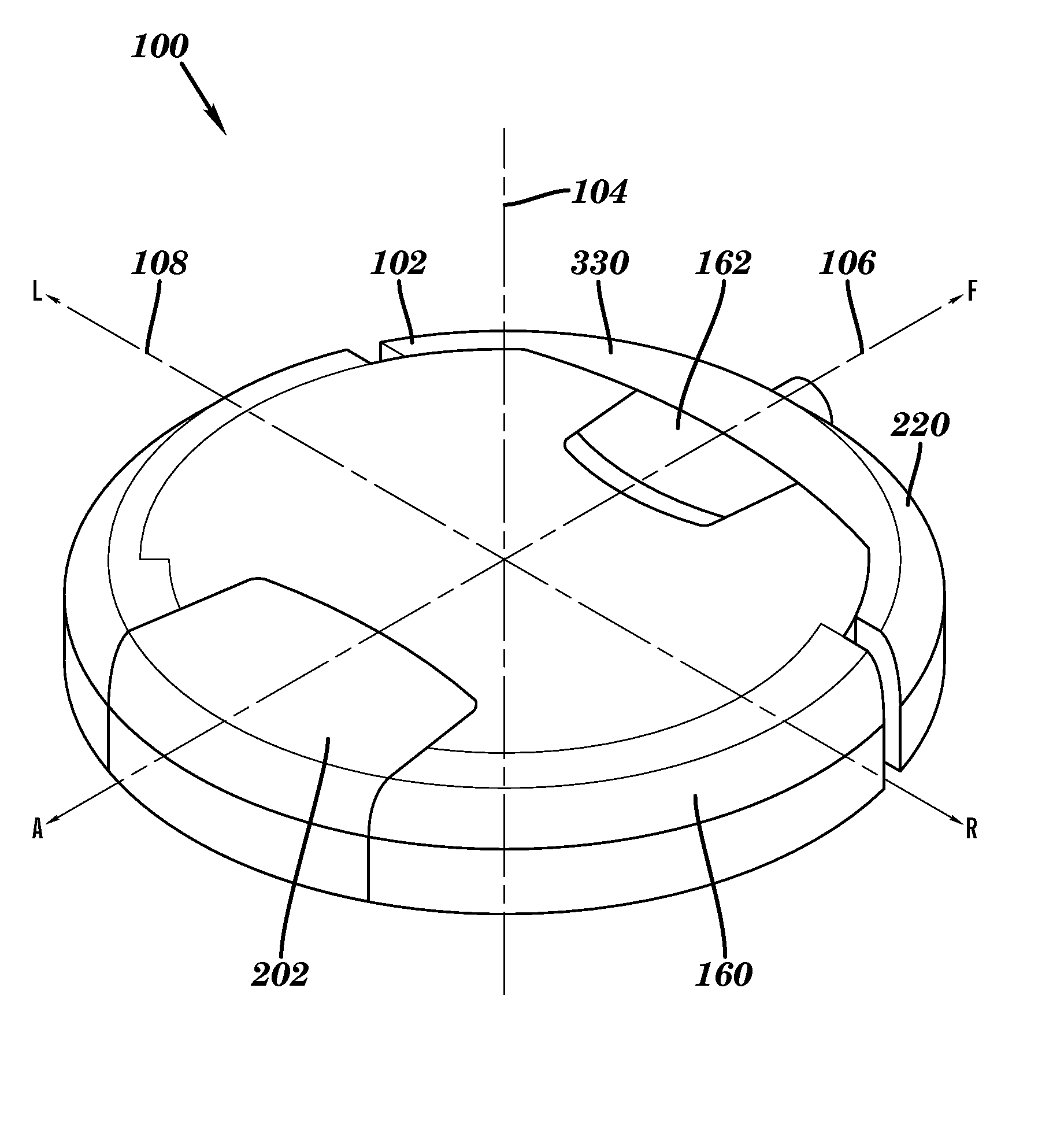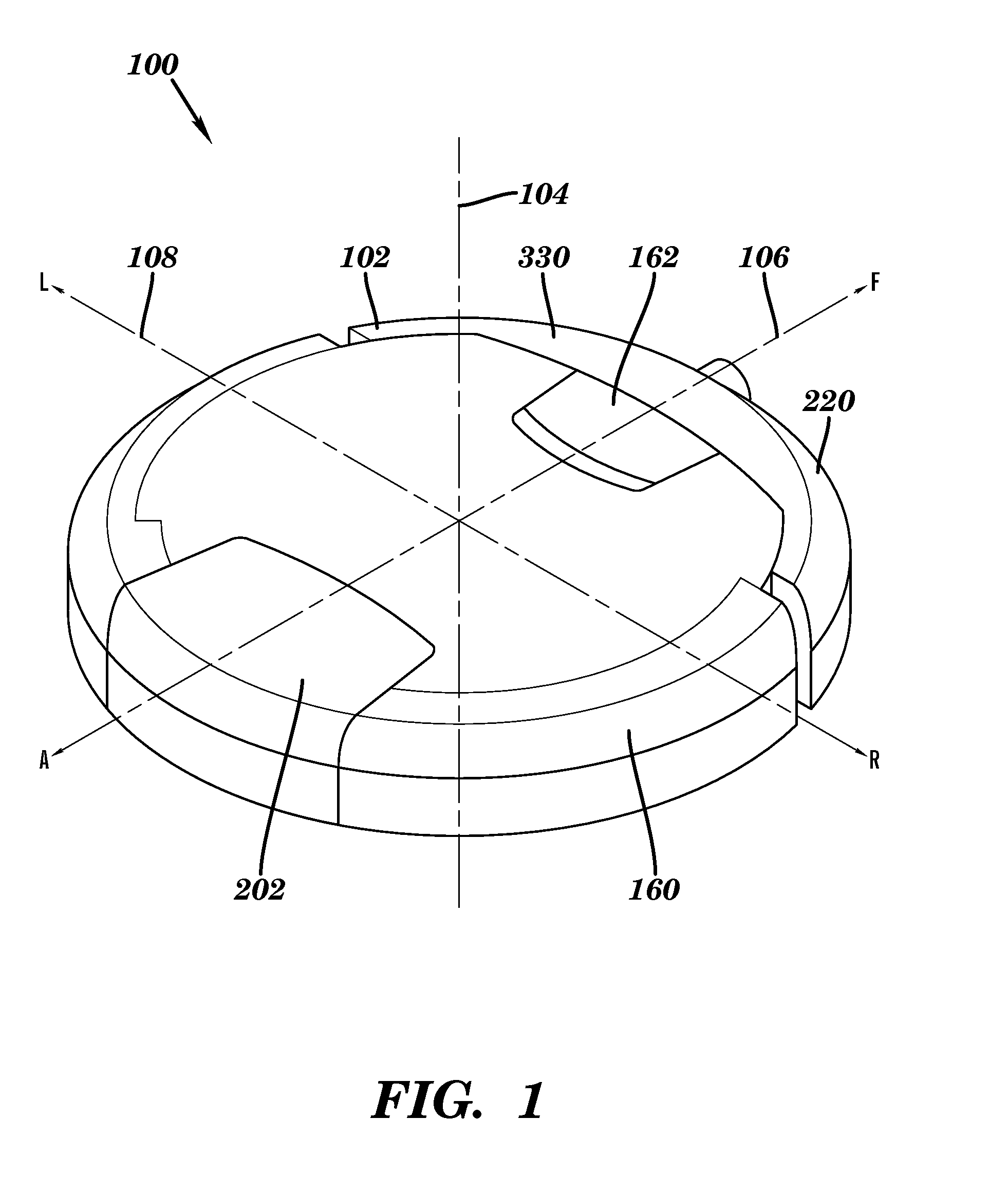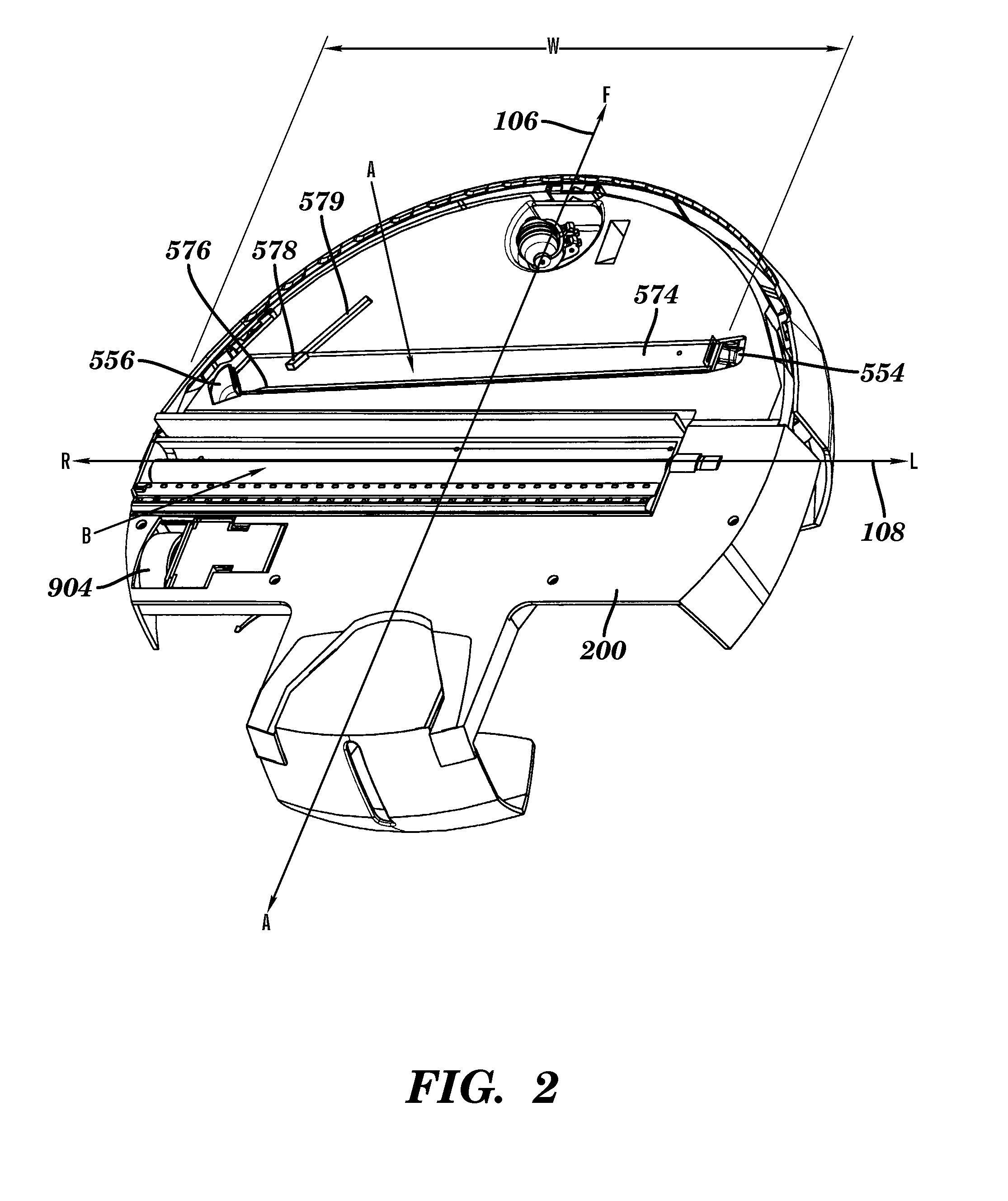Autonomous surface cleaning robot for wet cleaning
a technology of cleaning robots and autonomous surfaces, applied in carpet cleaners, instruments, photosensitive materials, etc., can solve the problems of deteriorating effectiveness of cleaning fluid, contaminated cleaning fluid, and inability to teach an affordable, autonomous floor cleaning robot for wet cleaning floors in the home, etc., to achieve low cost and affordable home use
- Summary
- Abstract
- Description
- Claims
- Application Information
AI Technical Summary
Benefits of technology
Problems solved by technology
Method used
Image
Examples
Embodiment Construction
[0065]Referring now to the drawings where like reference numerals identify corresponding or similar elements throughout the several views, FIG. 1 depicts an isometric view showing the external surfaces of an autonomous cleaning robot 100 according to a preferred embodiment of the present invention. The robot 100 is configured with a cylindrical volume having a generally circular cross-section 102 with a top surface and a bottom surface that is substantially parallel and opposed to the top surface. The circular cross-section 102 is defined by three mutually perpendicular axes; a central vertical axis 104, a fore-aft axis 106, and a transverse axis 108. The robot 100 is movably supported with respect to a surface to be cleaned, hereinafter, the cleaning surface. The cleaning surface is substantially horizontal. The robot 100 is generally supported in rolling contact with the cleaning surface by a plurality of wheels or other rolling elements attached to a chassis 200. In a preferred e...
PUM
 Login to View More
Login to View More Abstract
Description
Claims
Application Information
 Login to View More
Login to View More - R&D
- Intellectual Property
- Life Sciences
- Materials
- Tech Scout
- Unparalleled Data Quality
- Higher Quality Content
- 60% Fewer Hallucinations
Browse by: Latest US Patents, China's latest patents, Technical Efficacy Thesaurus, Application Domain, Technology Topic, Popular Technical Reports.
© 2025 PatSnap. All rights reserved.Legal|Privacy policy|Modern Slavery Act Transparency Statement|Sitemap|About US| Contact US: help@patsnap.com



